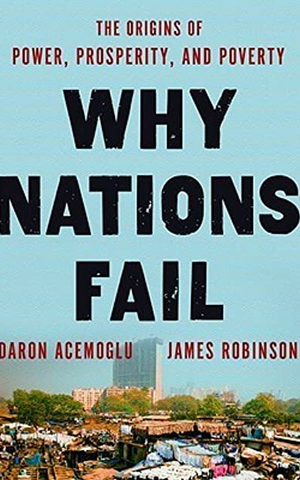
Why Nations Fail: The Origins of Power, Prosperity, and Poverty
- Book
- Mar, 2012
- #Economics #Politics
Brilliant and engagingly written, Why Nations Fail answers the question that has stumped the experts for centuries: Why are some nations rich and others poor, divided by wealth and...
Show More
Number of Pages: 529
ISBN: 0307719219
ISBN-13: 9780307719218
Mentions
See All
Alex Wieckowski @AlexAndBooks_
·
Mar 10, 2022
- Curated in BEST economics books
Jus_Sol_Barron @Jus_Sol_Barron
·
Jul 24, 2022
- Answered to What are the best books you’ve read on geopolitics, macroeconomics, and/or financial history?
- From Twitter
Why Nations Fail It should be required reading in every school. I read that before discovering Bitcoin. Having strong property rights and autonomy is literally the most important driver of prosperity. This is why I'm a Bitcoin bull. The future is bright 😎
CJ Johnson @CJJohns83890628
·
Jul 25, 2022
- Answered to What are the best books you’ve read on geopolitics, macroeconomics, and/or financial history?
- From Twitter
Natanya Friedheim @NatanyaAntoni
·
Nov 28, 2022
- Answered to What are you reading and would you recommend it?
- From Twitter
Sevcan Yeşiltaş @SevcanYeilta
·
Sep 5, 2022
- Curated in A List of Book Recommendations